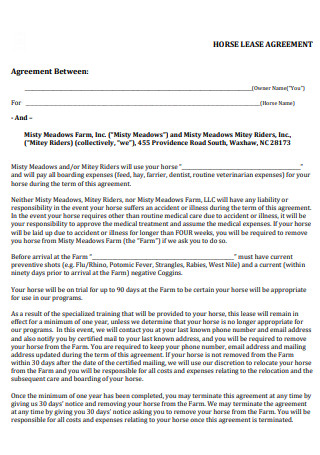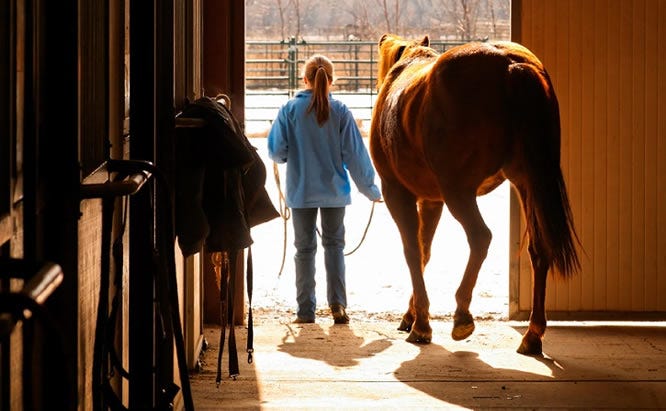The Ultimate Guide to Horse Leasing

Horse leasing is an excellent way for equestrian enthusiasts to enjoy the benefits of horse ownership without the full commitment and expenses. This guide will walk you through everything you need to know about horse leasing, from the basics to the finer details.
What is Horse Leasing?
Horse leasing is an arrangement where an individual (the lessee) pays to use a horse owned by someone else (the lessor) for a specified period. This can range from a few months to a year or more, depending on the agreement.
Types of Horse Leases
| Lease Type | Description | Typical Duration | Who It’s Best For |
|---|---|---|---|
| Full Lease | Lessee has full responsibility for the horse, including care and riding. | 6 months to 1 year+ | Experienced riders wanting ownership experience |
| Partial Lease | Lessee shares riding and care duties with the owner. | Flexible | Beginners or those with limited time |
| Free Lease | Lessee rides the horse without paying a fee, often in exchange for care. | Varies | Riders looking for experience or owners needing help |
Benefits of Leasing a Horse
- Cost-Effective: Leasing is generally less expensive than owning a horse outright.
- Flexibility: Lease terms can be tailored to fit your schedule and needs.
- Experience: Great way to gain riding experience and learn horse care.
- Less Commitment: Ideal for those unsure about full ownership.
How to Find a Horse Lease
- Local Riding Schools and Stables: Many offer lease programs.
- Online Marketplaces: Websites dedicated to horse leasing.
- Equestrian Clubs and Forums: Networking can lead to lease opportunities.
Important Considerations Before Leasing
- Understand the Lease Agreement: Know your responsibilities and rights.
- Assess Your Riding Skills: Choose a horse that matches your ability.
- Insurance: Check if insurance is needed for liability or medical coverage.
- Health and Care: Clarify who handles vet visits, farrier, and daily care.
Sample Lease Agreement Checklist
- Duration of lease
- Payment terms
- Responsibilities for care and maintenance
- Riding restrictions
- Termination conditions
Frequently Asked Questions (FAQ)
Q1: Can I lease a horse if I’m a beginner?
A: Yes, partial leases are often suitable for beginners as they allow shared responsibilities.
Q2: What happens if the horse gets sick during the lease?
A: The lease agreement should specify who is responsible for veterinary care and costs.
Q3: Can I compete with a leased horse?
A: This depends on the lease terms; some owners allow competition, others do not.
Q4: Is horse leasing cheaper than owning?
A: Generally, yes. Leasing reduces costs related to full ownership like boarding and medical expenses.
Leasing a horse can be a rewarding experience that offers many of the joys of horse ownership with fewer responsibilities. By understanding the types of leases, benefits, and important considerations, you can make an informed decision that suits your equestrian goals.
